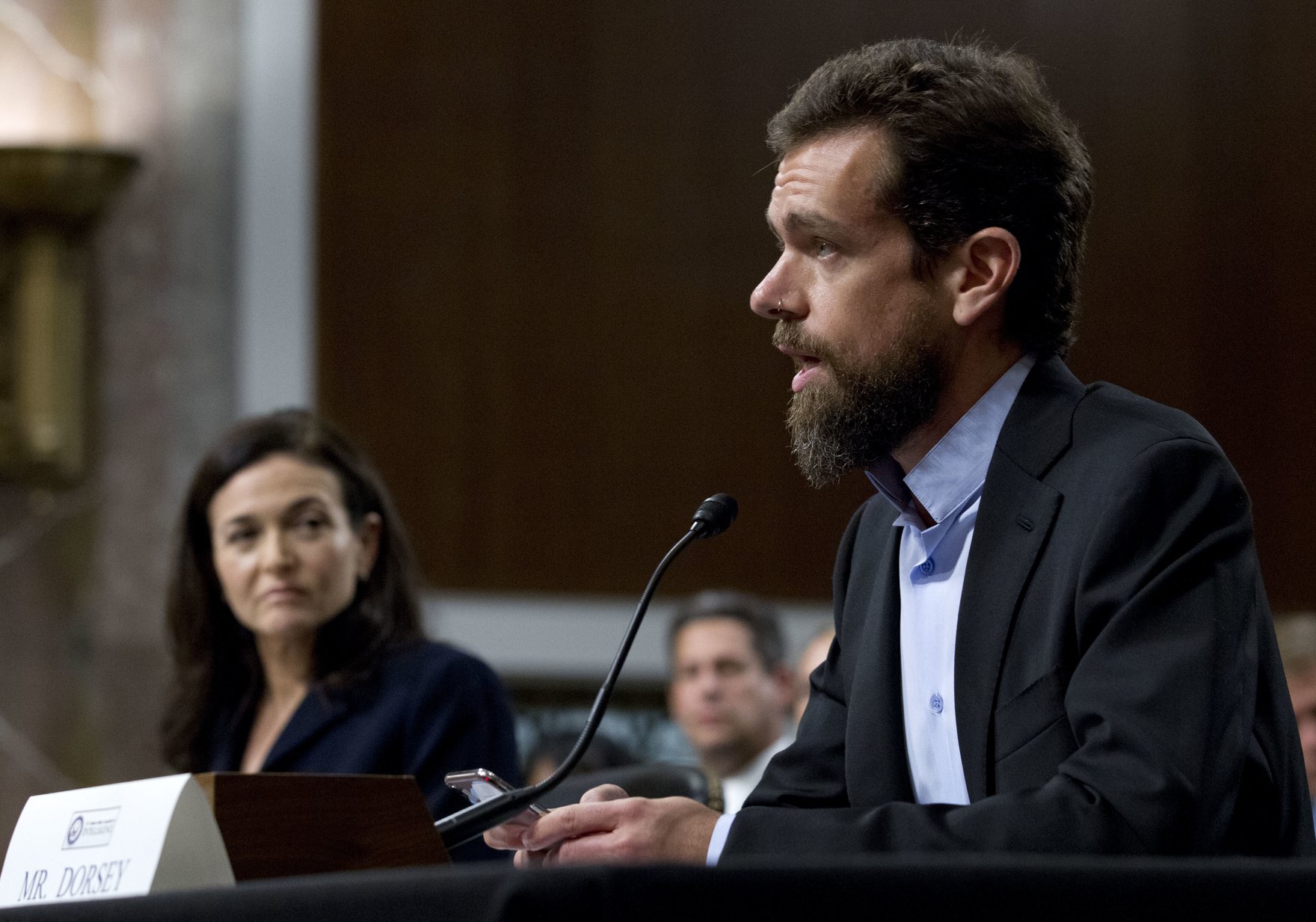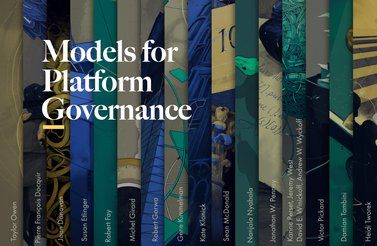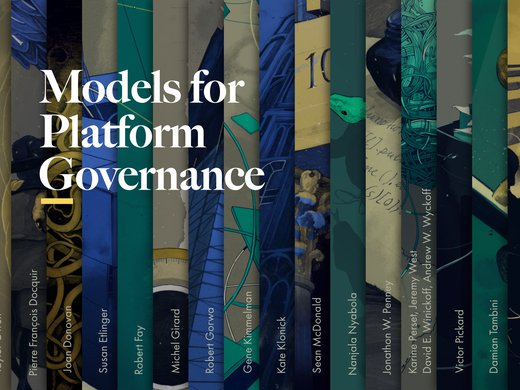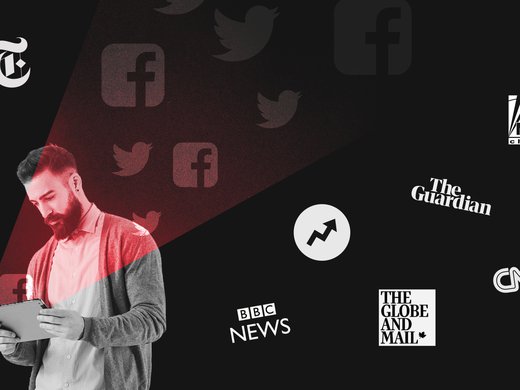On October 30, 2019, Jack Dorsey, Twitter’s chief executive, announced in a tweet that his platform would ban all political advertising. In the thread that followed, he wrote that “political message reach should be earned, not bought,” and recognized the role micro-targeting and misleading information can play in influencing an election. While Dorsey’s thread noted the need for “more forward-looking political ad regulation,” he stopped short of sharing the criteria that will be used for identifying political ads or of discussing how the ban fits into a wider regulatory framework. The final policy is expected on November 15 and will come into effect on November 22.
We’ve made the decision to stop all political advertising on Twitter globally. We believe political message reach should be earned, not bought. Why? A few reasons…🧵
— jack (@jack) October 30, 2019
The announcement received a great deal of attention, particularly because it is at odds with Facebook’s recent decision to allow any claims — even fake ones — in political advertisements. While Dorsey’s thread sparked new debate about digital platforms’ role in the lead-up to an election, academics and policy makers have long been discussing the ad hoc, disjointed approach to platform regulation.
To shed light on that long-standing discussion, we asked seven experts if Twitter’s new advertising policy puts pressure on other platforms and how the decision to ban political ads might play into a broader discussion on platform regulation. This article compiles their responses.
Joan Donovan, Harvard Kennedy School
While these companies tend to move in a flock, we will see some very significant differences in their approaches to governing speech, based on the difference in scale of advertising across these companies. For example, Facebook serves many more ads than Twitter, and Facebook does a better sell of direct marketing than Twitter. Google and YouTube’s ad services don’t work in the same way and therefore will not be as publicly pressured to change their policies right now. Overall, online advertising is about breaking away from known networks and obtaining bigger audiences for messaging, but the sneaky way that platforms launder advertising inside feeds makes it difficult to perceive what is an ad and what is content. Facebook, though, will have a much bigger problem with political ads than other platforms because of these factors. Until that changes, we’re going to continue with the same media manipulation problems we’ve faced over the last few years.
I keep getting this ad to “sign up to win a chance to have a beer with Elizabeth Warren.” Anyone who clicks on the ad automatically has their username recorded. Going through with the sign-up, and potentially even donating to Warren’s campaign, is secondary to the objective of the ad, which is to get the information from clicks. At this stage, Warren is trying to find audience segments to retarget later. However, with Twitter’s ad policy changes, targeting will no longer be possible on that platform, which means that Facebook is going to get the lion’s share of political advertising, along with the headaches that come with it.
Elizabeth Dubois, the University of Ottawa
Banning political and issues advertisements on Twitter could incentivize other approaches to promoting content on the platform that are manipulative and less transparent. For the public to engage in political discussions online they need to have tools to evaluate the information coming across their screens. Political advertising transparency is one piece of the puzzle because it can make clear who is paying to promote messages and who is being targeted, and it offers journalists and others the opportunity to hold politicians to account for their messaging.
With the ban, political entities will not simply stop using Twitter — it is a useful tool for connecting with journalists and political elites — but they may find new ways to funnel money into promoting their content. Working through Twitter’s system to promote content is not the only way to pay to have a voice. For example, one might pay for networks of automated or human-run accounts to tweet, re-tweet and favourite content.
These and other tactics are meant to circumvent and game the algorithms used to prioritize content. We have little ability to identify or prevent these practices. Twitter is building some capacity, but it keeps the details under wraps (often necessary to prevent further manipulation). Ultimately this means paid political messaging will be further pushed underground.
Robert Fay, the Centre for International Governance Innovation
Twitter’s move to ban political ads is laudable; however, it highlights the need to have a consistent set of rules across the platforms — not only in this area, but also to determine what is fake or malicious content and then to decide how to treat it. Should it be labelled in some way to notify users? Should it be removed before users even see it? Should it be banned as Twitter has done in this instance? These and other thorny questions can be addressed by developing a set of principles and standards through a multi-stakeholder process that could then be implemented across countries to reflect different views and values. I propose a Digital Stability Board that could pull together stakeholders to undertake these and other efforts necessary for this digital platform age. This may seem like a daunting effort, but it can be done.
Jesse Hirsh, Futurist and Researcher
Twitter’s decision to not accept political advertising is a distraction from proper platform regulation and acknowledges that political advertising was never a significant source of revenue for the company. Rather, it emphasizes that Twitter is itself a political ad — as demonstrated by US President Donald Trump’s regular usage — and that instead of encouraging people to pay, Twitter wants to encourage people to play their game of tweet-based politics. In focusing on engagement and increased usage, Twitter hopes to increase overall advertising revenues by furthering its position as the primary arena of open political debate.
Twitter hopes their decision will further promote and incentivize the public to engage and discuss political issues on their platform rather than others’. If successful, this will fuel polarization, sensationalism, automation and the power of incumbency. Like other social media platforms, Twitter has ignored available research on the impacts of their laissez-faire model, and instead is focusing on their bottom line, which is driven by user growth and engagement. As long as platforms employ minimal and inadequate governance models, the problems society associates with social media will continue to grow and expand.
Daniel Kreiss, the University of North Carolina
Twitter’s decision puts new pressure on other platforms, namely, Facebook and Google (and their holdings Instagram and YouTube, respectively). We now have two extreme positions — Facebook’s “anything goes” approach to political ads and Twitter’s “nothing goes” approach. I hope these two extreme positions help us more clearly see a middle ground for platform self-regulation of political ads. Namely, these platforms should allow political ads, but create more friction in the relationship between candidate or cause, content and citizen. The problem lies in the political data and sophisticated advertising tools that afford micro-targeting, not in political ads. [These tools] enable paid political content to be developed for and targeted to very small slices of electorates. Platforms facilitate and incentivize the most extreme content because they allow political actors to speak only to the people likely to be the most sympathetic and responsive to their ads, which often feature extreme and highly emotional and fear-based appeals. As such, Twitter and Facebook amplify the most extremist political rhetoric. Building more friction into advertising systems by limiting the use of political data and making targeting less precise would force political actors to speak to broader publics and therefore would incentivize them to moderate their messages.
Political ads are an important way that candidates for office try to reach a fragmented and inattentive public. Why take the extreme approach instead of adding more friction into the system by marking it harder to micro-target? https://t.co/KHfp4dnwTX
— Daniel Kreiss (@kreissdaniel) October 30, 2019
Twitter is privileging commercial speech over political speech, and organic reach (especially by elites) over paid reach. First, while it’s not clear how Twitter will define what is “political,” the company will likely place greater barriers to entry in advertising on advocacy organizations than on the companies they often target. For example, companies will remain free to promote consumer goods, while advocacy organizations will face barriers when trying to educate consumers about ethical choices. Twitter will likely also bar companies such as Nike from taking a stand on social issues through advertising. Second, research shows that digital advertising lowers the cost of putting paid messages in front of voters compared with television, which is particularly important given fragmented public attention. A broader array of candidates, such as challengers to incumbents, engage in digital advertising than in other forms. In privileging organic reach over paid reach, Twitter is making the political choice to favour those who already command the most attention online and in society, and who can parlay that into even greater reach. Often, political newcomers rely on digital advertising early on, which lays the groundwork for organic reach. Twitter’s decision will serve to further entrench the capital of media and political elites.
Fenwick Mckelvey, Concordia University
Just as I avoid Dorsey’s health advice, I think it wise to avoid his advice on online advertising. Real solutions would defund digital surveillance by regulating behavioural advertising and limiting the data used for targeting. In Canada, we should consider a royal commission on digital advertising and ensure Dorsey’s tweets don’t set the policy agenda. Dorsey’s Twitter-thread-cum-policy-statement is an attempt to frame the policy agenda, proposing a solution easy enough for Twitter to implement but wholly inadequate for the problems at large. Twitter, as we know from Susan Delacourt, is a small player in Canada’s political ad space, and that’s probably true globally.
Twitter’s withdrawal serves more to distract by framing the problem as politics instead of as the industry at large. The problem is not that the wrong people use targeted advertising — be they politicians, activists or foreign agents — it’s a digital economy built on data-driven advertising. Concerns about political advertising are symptoms of a growing consensus that behavioral advertising has little public benefit. I can’t decide what's more problematic: Dorsey’s announcement, or the faddish attention it’s received, as though only online advertising companies set the policy agenda. These debates should not be set by the likes of Twitter, and this proposal only serves to distract from more necessary reforms.
Heidi Tworek, the University of British Columbia
Much ink has already been spilled on Dorsey’s announcement that Twitter has “made the decision to stop all political ads globally.” But the discussion has focused on the political ads, not on the global impact. Will Oremus has argued that banning political ads will “hurt activists, labor groups, and organizers.” Shannon McGregor has pointed out that this policy may, ironically, end up amplifying Trump, because 80 percent of his tweets end up in news stories anyway. Trump does not need advertising; Twitter’s policy makes it harder for newcomers to use ads to break through. The focus on the United States is understandable with the upcoming 2020 election. But as so often with social media platforms, global policy decisions are made with US policy in mind. To give one example, what about advertising products for the LGBTQ market in Uganda, which currently criminalizes homosexuality and plans to impose the death penalty for gay sex? The lines between the political, economic and social are blurry. They always have been, and they always will be. As McGregor notes, Twitter’s policy was “great PR” in the United States, although it will prove tricky to implement. The enforcement globally could prove even more troublesome.




